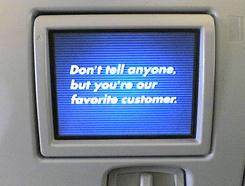
This week, we all learned of the horrors one passenger faced when JetBlue kicked him off a flight, after he attempted to travel from New York to Los Angeles during Ramadan. In this incident, we learned a few key things, like if you have any pigmentation in your skin and you have a foreign-sounding name, just stay at home. You’re probably better off not flying during Ramadan. We also learned that JetBlue should probably fire their social media guy for making the brand look idiotic.
Flying While Brown: An Abbreviated History
Mukerjee seems like a sharp guy. I have no doubt that he’ll ultimately remain unfazed by the air carrier’s incompetence. However, JetBlue has alienated its customer base. Let’s not fool ourselves into thinking that boycotting JetBlue is going to have some measurable impact in preventing other brown men and women with seemingly weird-sounding names from experiencing the same kind of harassment that Mukerjee did.
After all, Delta gave some grief to another Indian man this time last year. He had the gall to wear a t-shirt so unabashedly ironic that it wouldn’t be out-of-place in any kind of hipster neighborhood. Even Bollywood darling Shah Rukh Khan was detained for two hours in New York when en route to deliver a lecture at Yale University. What can we do if we’re powerless to demand, you know, actual decency from airlines? We can at least demand they conduct their public relations with a modicum of decency, right? Right?
Where Did It Go Wrong for JetBlue?
JetBlue has worked hard to become the social media darling of the tech industry. Mashable sang its praises a couple years ago and stories of JetBlue reps helping passengers needing extra help via social media is what made them highly competitive in the first place. Which is why their handling of the public outcry against their treatment of Mukerjee seems like the kind of business-class blunder that ought to get their social media guy axed.
All in all, JetBlue’s pretty amiable as a corporation can be on Twitter — even reaching out in other languages when necessary. Which is why the following exchange seems especially disturbing:
@chimeracoder and we regret the inconvenience that caused you. We understand you were offered to travel the following day, or a full refund.
— JetBlue Airways (@JetBlue) August 22, 2013
This is the kind of cold, corporate script that you’d expect from companies that are struggling to connect with consumers through Twitter, but not JetBlue. For the countless hours and dollars the brand has sunk into creating a warm façade of a community around itself, this is exactly the kind of response — a non-apology broadcast to many outraged members of Twitter — that makes such significant investment into the medium practically a moot point. While threats of boycott pledged by annoyed users aren’t likely to dent the airline’s profit margins, the word-of-mouth is wont to create lasting damage to JetBlue brand.
So, What’s the Damage?
When you become known as “That racist airline who wouldn’t let a guy on and then failed to apologize to him for your crew’s incompetence,” you’re not only blemishing your brand to other passengers of color, but to all passengers, really. The link between social media and direct sales is already pretty nebulous. When your social media strategy ends up widening that rift instead of finding more ways to close it, it’s time for a serious reassessment. This kind of Twitter exchange is going to leave a lasting bad taste for many would-be passengers and possibly even return travelers. It’s inconsistent with the brand’s warm tone and magnifies an enormous weakness in their public relations strategy. Moreover, it makes people think twice about booking flights directly through JetBlue’s website. Would-be passengers are likely to explore other options with competitors.
The problem isn’t that other airlines would act any more competently in a similar situation. It’s that JetBlue — which has prided itself for being a cut above the rest — has now settled to the bottom. It’s become the rest. It’s become the rest in defiance of its meticulously-executed social media efforts. Which kind of defeats the point of @JetBlue in the first place, doesn’t it?
Rohin Guha is a writer currently living in the Metro Detroit area. His work has been featured at Flavorwire, Tumblr’s Storyboard, Gawker, New York Magazine, The Rumpus, and many others. His first book, Relief Work, was released in 2010 by Birds of Lace. He firmly believes that pop music will save the world.












